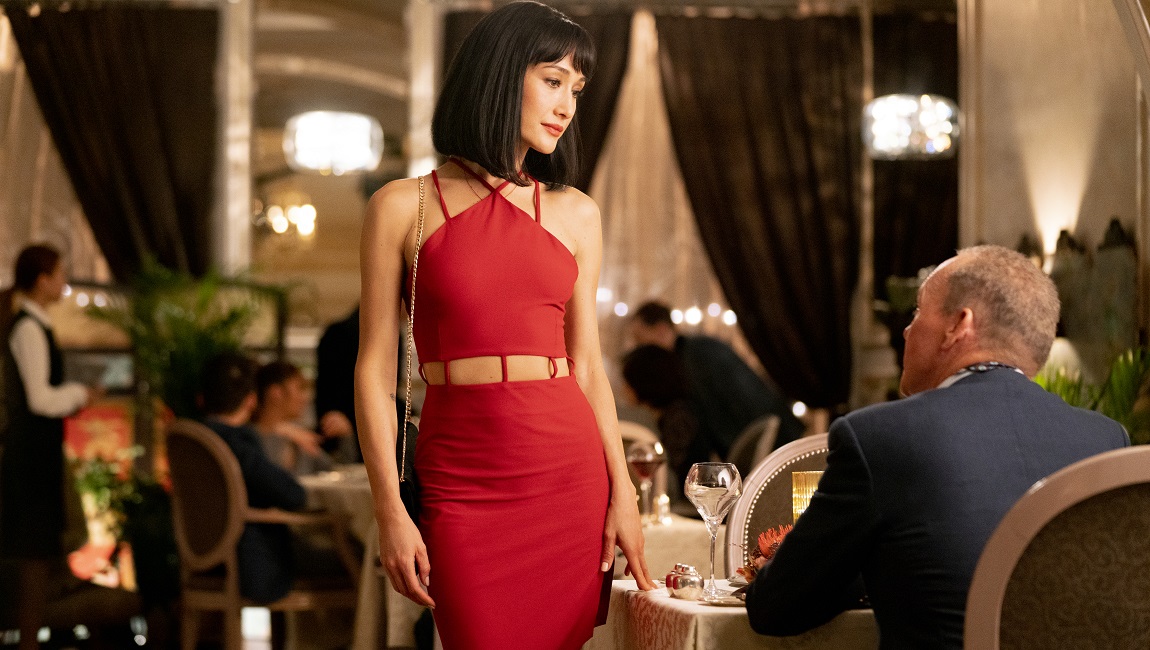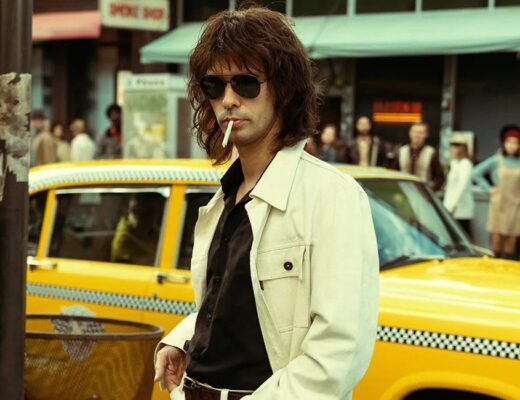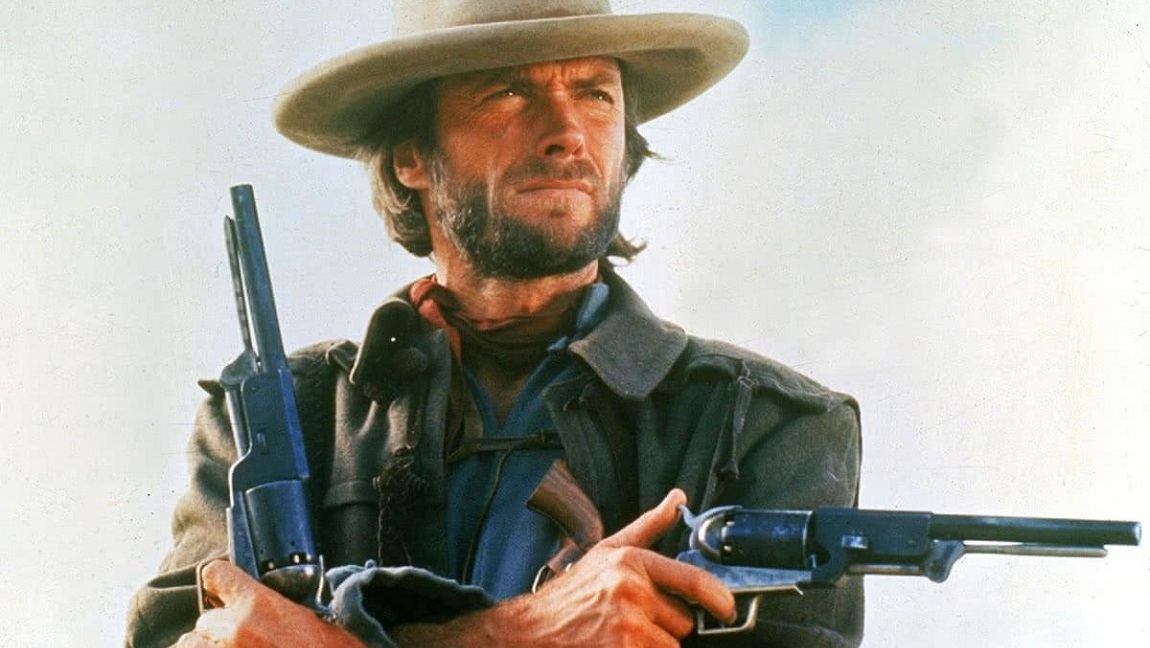Víctor Erice’s Close Your Eyes opens to a beautiful autumnal scene of the French countryside in 1947: an old fictional mansion (called “Triste le Roy”) is peacefully visible in the background, surrounded by immense gardens where, in a corner, the bust of a two-faced Janus, with a face of a young guy looking back at what once was and an older bearded man looking toward what’s yet to come, is singled out. In this scene, we find a private eye named Monsieur Franch meeting with Monsieur Lèvi, a wealthy and ill old man whom we understand intends to hire Franch to find his missing daughter in Shanghai. But it’s right after this roughly 15-minute, one-on-one conversation between the duo, when the detective accepts his mission and steps out of the mansion, that we realize via voiceover that what we’re watching is merely a film-within-a-film (titled The Farewell Gaze) and Franch a character played by a Julio Arenas (José Coronado), a famous Spanish actor who disappeared in 1990 with nary a trace and plenty of speculation.
We’re then thrown into 2012 Madrid, where Miguel Garay (Manolo Solo), the director of that unfinished film and Julio’s longtime friend, is about to attend a TV program (Unsolved Cases) which tries to bring the latter’s enigmatic case into the spotlight again after 22 years. This occasion eventually leads Miguel down a labyrinth of memories and encounters, in which he tries his best to figure out what actually happened to Julio. Is he really dead? Was he involved in a fatal affair concerning the authorities, as one conspiracy theory journalist claims? Or did he merely trade his stardom for precious anonymity? One thing is certain: while narratively, the idea of finding Julio presents a parallel (or even subsidiary) driving force for the film to play as a slow burn thriller, we can still readily expect that Close Your Eyes, in Erice’s hands, will gradually move from the investigation of a mystery to broader, introspective investigation. Erice’s virtuosity in poeticizing genre — 1973’s The Spirit of the Beehive is, to this day, one of the greatest examples of amalgamating horror tropes within European arthouse aesthetics — as well as his subtle and patient storytelling results in a magnificent tale of self-discovery, shaping itself as a detailed reflection on life and death, love and friendship, and the philosophical quagmires of time, memory, oblivion, and remembrance.
Mainly structured as a series of lengthy one-on-one conversations between Miguel and other characters, which usually take place in various interiors in order to emphasize the sense of privacy and intimacy, Close Your Eyes treats mise-en-scène in a way that allows the natural flow of the actors’ rhetorical abilities to play a crucial role in enhancing the whole of the film’s beguiling atmosphere. Utilizing plenty of various materials, from books to photographs, archival footage to movie posters, and even a couple of songs that assist Miguel’s (personal) investigations along the way, Erice’s unique visual regimen and tranquil narrative distributions embrace a very specific archeology of the past; politics, lost loves, and, perhaps most importantly, film history itself — it’s indeed not accidental that Miguel once published a novel whose title (Ruins) bears an eloquent echo. This archeology is also expertly articulated through Erice’s baroque chiaroscuros — the different shades of light and dark working in tandem with the film’s essential concepts of appearance, disappearance, visibility, and invisibility — and elegant compositions (specifically, his random frame-in-frames).
Whether through the movie posters of Charlie Chaplin’s Monsieur Verdoux and Nicholas Ray’s They Live by Night or through direct homage to Howard Hawk’s Rio Bravo — in one of the rare scenes that features more than two characters in conversation, Miguel and some friends sing “My Rifle, Pony & Me” — Close Your Eyes’ undeniably cinephilic weight and scope are a perfect fit for Erice — who himself arguably disappeared, or at least became somewhat of a recluse. This film marks the director’s first feature in 31 years, after the release of his 1992 docudrama Dream of Light, and is an excellent vehicle through which to re-examine questions of life’s meaning with the help of his appreciation of film. But despite all of Erice’s obvious allusions to the medium, Close Your Eyes is still inherently a meta-film that must be viewed simultaneously as a fraction and overlap of fact and myth, truth and fiction, the real and the image; the subtler connotations between his work and that of Michelangelo Antonioni’s in L’Avventura and Blow-Up (with certain amounts of Hitchcockian tendencies) may be of interest to viewers as well. In the film’s penultimate scene, before Miguel finally hosts his climatic, emotionally moving private film screening — which can also be seen to mirror the unforgettable scene Erice conjures in The Spirit of the Beehive where children watch James Whale’s 1931 Frankenstein — Max (Mario Pardo), an old friend who is a projectionist and archivist, skeptically but kindly asserts, “You think a movie can bring about a miracle? Give me a break! Miracles haven’t existed in movies since Dreyer died.” It’s a fitting statement to engage with the work Erice delivers in Close Your Eyes: the director allows us to keep our faith in the beauty, mystery, and magic of films as a constant act of remembrance in the face of oblivion. It offers up a very particular immortality in the face of death, such that, in a Janus-like manner, we can turn our gaze toward both the past and the future of cinema
Published as part of NYFF 2023 — Dispatch 1.







